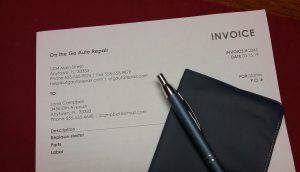It began as a normal six-month dental check-up – no pain, no problems. After the X-rays, cleaning, and exam, my dentist informed me the X-ray showed an abscess above a back molar. The next thing I knew, I was headed to the endodontist for a root canal then back to my dentist for a permanent filling – wow! Who saw that coming? That was a classic “Life happens” moment!
We all face those unexpected events – a flat tire, a faulty alternator, an appliance on the fritz, a medical emergency. The question is, do we have the funds available to cover it? An emergency, or “rainy day,” fund helps us to handle those surprise expenses more easily, reducing our need to borrow to pay for them.
How much should we have in our emergency fund? A minimum of $1000 is a good starting point – that typically will cover most emergencies. A fully funded emergency reserve is three to six months of expenses; some financial advisors recommend eight to 12 months of expenses. If you are the sole breadwinner in your household, funding it to six months or beyond gives you a greater cushion. What is significant about these numbers? If you were unable to work due to a job loss, layoff/furlough, illness, or a family emergency, you would have funds available to tide you over until you could get back on your feet. Having funds to keep you afloat for a few months removes a lot of pressure and may allow you to explore your options without feeling like you need to take the first job offer that comes along because you “need the money.”
How do you fund your emergency fund? Look at your finances and, if you aren’t already in the habit of doing so, set aside a portion of your paycheck for savings right off the top – pay yourself first! Even if it’s just a few dollars per paycheck, those dollars will add up. If you receive a pay raise, save the difference between the new amount and your pre-raise salary. Your income tax refund is another great way to jump start your emergency fund – use Form 8888 Allocation of Refund to direct deposit your refund into one or more accounts.
It is a fact of life that life happens – be prepared with an emergency fund!
For more information on saving for emergencies, please see UF/IFAS FCS 7014 Money and Marriage: Saving for Future Use.
- Check Your Coverage While the Sun is Shining - July 3, 2025
- Clean Up with Homemade Cleaners - April 28, 2025
- 5 Ways to Cool Your Power Bill - August 28, 2024

